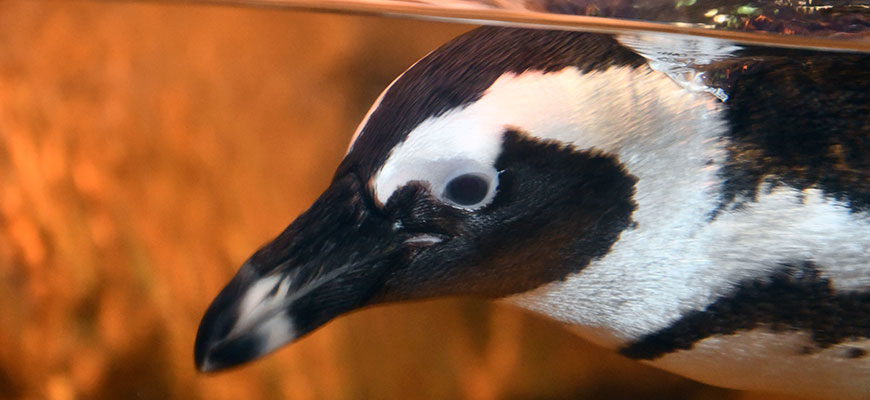CONTACT: Kyle Shepherd
Direct: 502-238-5331 | Media Only: 502-744-5639
kyle.shepherd@louisvilleky.gov
The Louisville Zoo is happy to announce that guests can now visit the popular and beloved indoor penguin exhibit again as repairs on the Islands exhibit are now complete. To christen the newly renovated exhibit, the Zoo welcomed an entirely new penguin species: seven African penguins. The rockhopper penguins that were previously in the exhibit were transferred to another Zoo during the extended renovations.
Guests can now get to know Sphen (age 6), Maggie (age 6), Nigel (age 3), Simon (age 3), Isaac (age 2), Darwin (age 1) and Winnie (age 1). All have little name tags on their wings to help guests identify them. Sphen and Maggie come to us from the National Aviary in Pittsburg, PA and the rest are from Greensboro Science Center in Greensboro, NC.
The Islands exhibit is open daily. Zoo hours are currently 10 a.m. to 4 p.m. (enjoy the Zoo until 5 p.m.)
All of the penguins are a part of a Species Survival Plan for threatened African penguins. Managed by the Association of Zoos and Aquariums (AZA), the program maintains the genetic health of more than 800 African penguins throughout the 50 AZA-accredited zoos and aquariums that house penguins.
The Louisville Zoo continues to align its animal collection with the mission of helping endangered species. This penguin species is part of the Association of Zoos and Aquariums Saving Animals From Extinction (SAFE) program, which combines the power of zoo and aquarium visitors with the resources and collective expertise of AZA members and partners, all focused on saving vulnerable wildlife species from extinction and protecting them for future generations.
ABOUT AFRICAN PENGUINS
African penguins come from the South African coastal waters where their habitat is rocky shores and the cold currents of the coast. Their remnant wild diet consists of Cape anchovy and other small fish, at the Zoo they eat a variety of ocean-harvested fish. They swim quickly, using their wings as flippers and their feet as rudders. Their numbers have undergone steep decline resulting in their endangered status. Today it is estimated that there are only 22,000 breeding pairs in the remnant wild (in the early 20th century that population was more near one million). Their biggest threats are oil pollution, habitat loss, introduced predators, climate change, overfishing and other human disturbance.
***
The Louisville Zoo, a nonprofit organization and state zoo of Kentucky, is dedicated to bettering the bond between people and our planet by providing excellent care for animals, a great experience for visitors, and leadership in scientific research and conservation education. The Zoo is accredited by the Association of Zoos and Aquariums (AZA).
# # #

